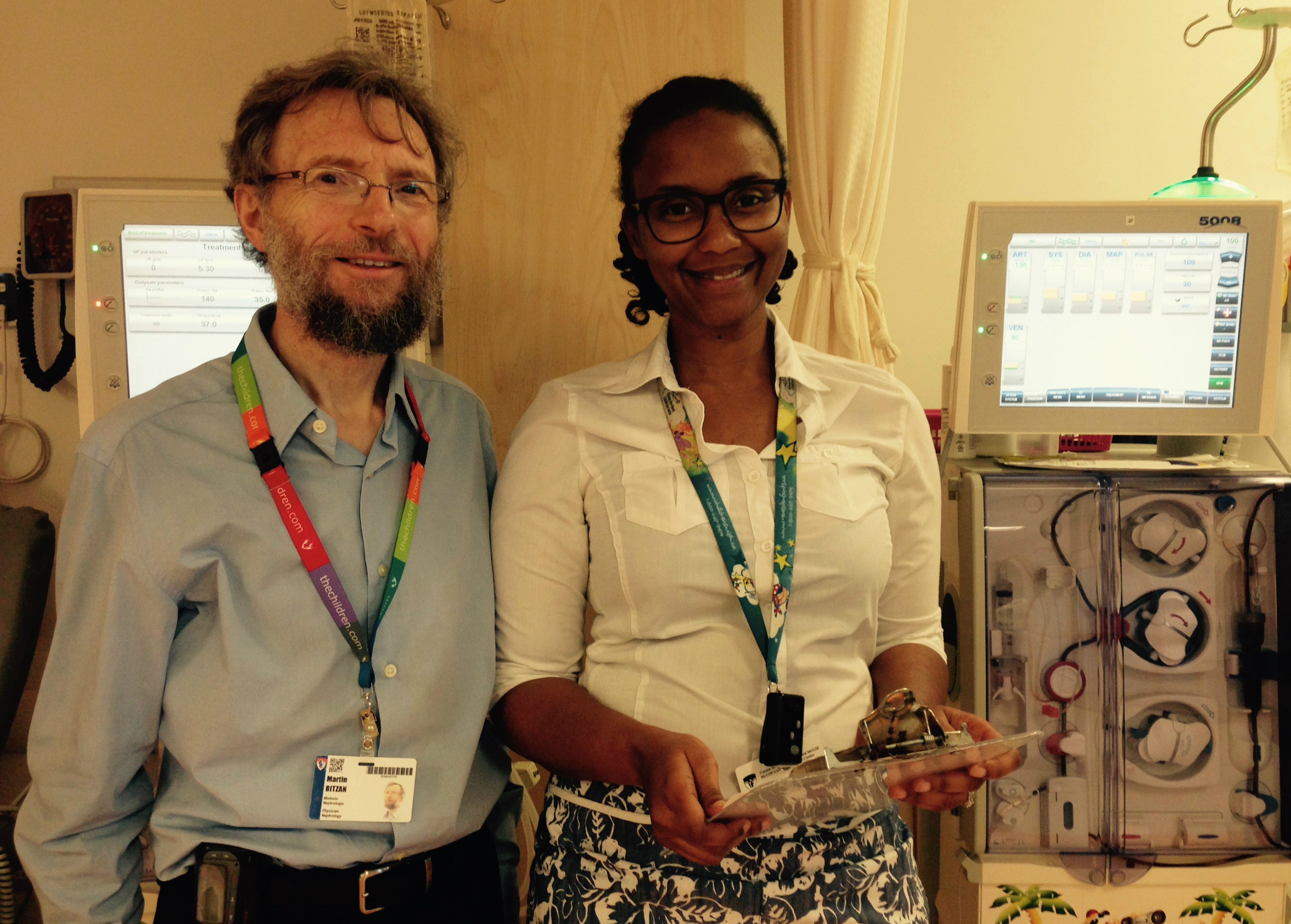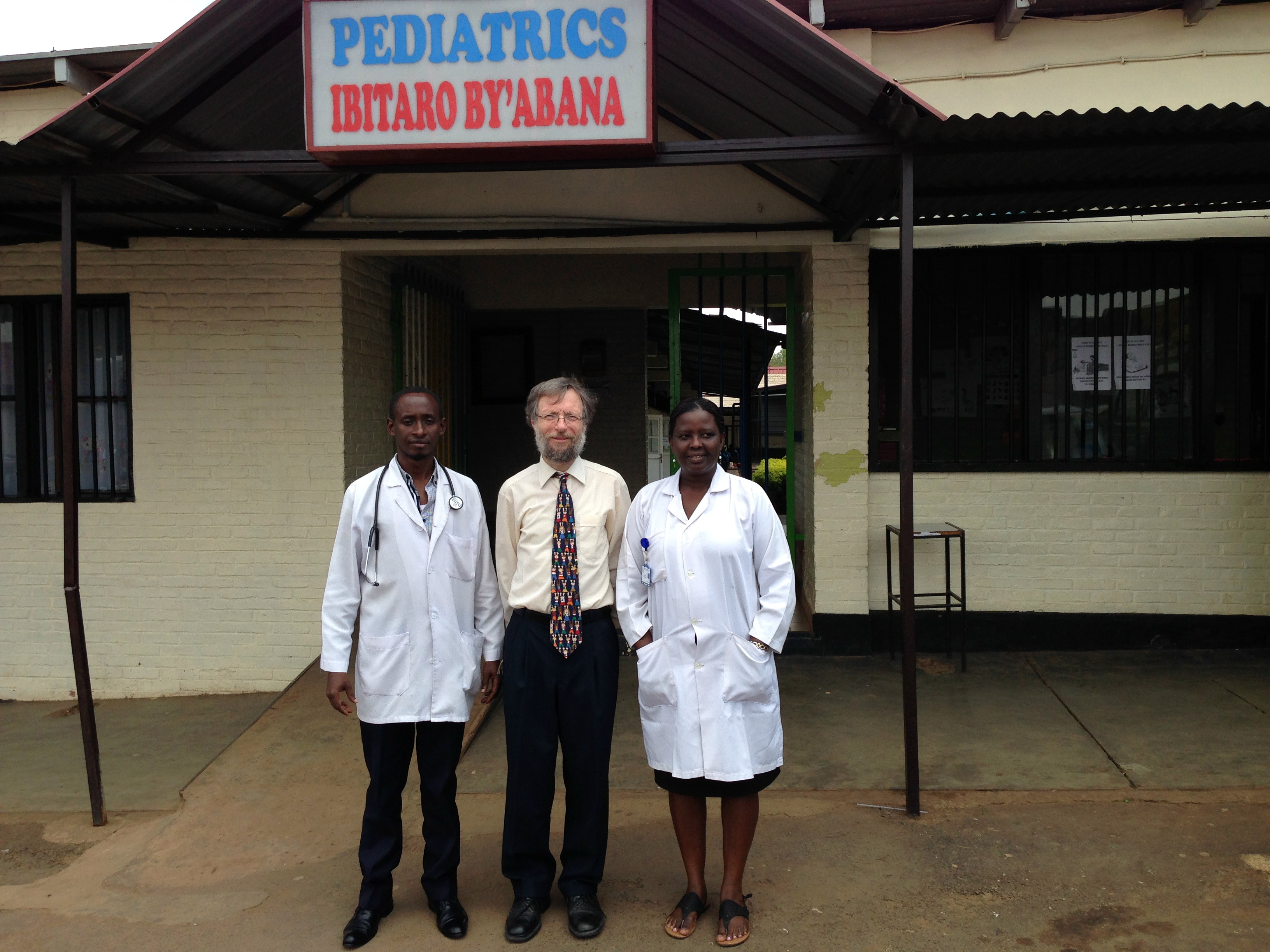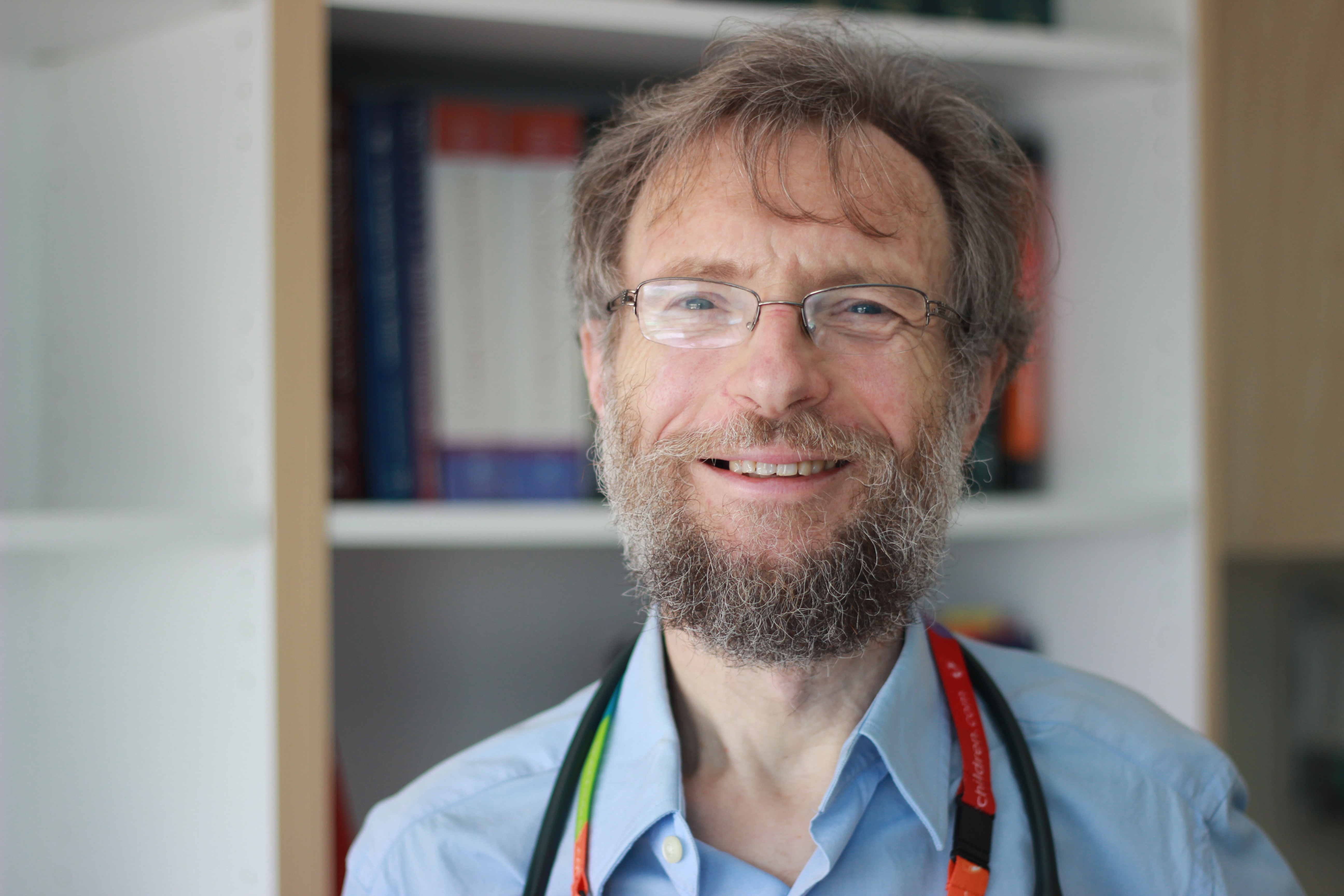Pediatric Nephrologist Martin Bitzan: global health embraces clinical specialties

World Humanitarian Day, August 19, commemorates people who lost their lives in humanitarian service and celebrates the spirit that inspires humanitarian work around the world. Every year, McGill University Health Centre (MUHC) physicians, residents and nurses travel to countries such as Haiti, Rwanda, Mozambique and Uruguay to take part in on-site clinical work, capacity building, and education, research and exchange programs. Besides bringing much-needed support to regions with limited resources, these partnerships help our staff gain valuable experience and contribute to enhance the international profile of the MUHC. Below are examples of our doctors’ volunteer work.
By the end of 2015, Pediatric Nephrologist Dr. Martin Bitzan will have travelled to Rwanda, Ethiopia, China and possibly India. Far from touristic, the trips are part of the physician’s mission to increase expertise and build capacity in pediatric nephrology in countries with limited resources.
“Even as a child in Germany, I thought of working with less advantaged communities, and this was basically why I went into Medicine,” says Dr. Bitzan, who is director of the Pediatric Nephrology Division at the Montreal Children’s Hospital of the McGill University Health Centre (MCH-MUHC). “But I was only able to pursue this goal after having settled in Canada.”
His first opportunity arose in 2008, through the International Society of Nephrology’s Sister Renal Center Program. The ISN program linked the MCH Division of Pediatric Nephrology and the St. John’s Medical College Hospital in Bangalore, India.
“I visited hospitals, saw patients and discussed with local colleagues. I could see where the needs were,” he says. “It’s different than just flying in for a conference.”
Dr. Bitzan believes global health programs should embrace specialized areas.
“Of course, there are the primary concerns such as high mortality rates, infectious diseases, malnutrition, and these are being addressed. But what happens when a child who survives severe malaria develops temporary kidney disease and dies? Why shouldn’t this child have the same right to receive dialysis and survive as our children do?”

Benefits to MCH patients
For countries in need, partnerships are an opportunity to build capacity and to avoid brain-drain by offering qualified local doctors specialized medical training. They also involve bringing foreign doctors to train in western academic hospitals. Rebecca Thomas is a doctor from Jamaica who is completing a two-year fellowship tailored to her needs at the MCH’s Department of Nephrology.
“Children in Quebec and in Montreal benefit from Dr. Thomas’s care and, as an added bonus, we have extra time to better do our job.”
Dr. Bitzan is already planning his next trip to Rwanda. He’ll work on the implementation of a continuing medical education program for doctors and nurses, a partnership between the Centre Hospitalier Universitaire de Kigali (CHUK) and the MCH Global Child Health Program. The collaboration, partially funded by the MCH Foundation, will be the first of its kind in Rwanda.
